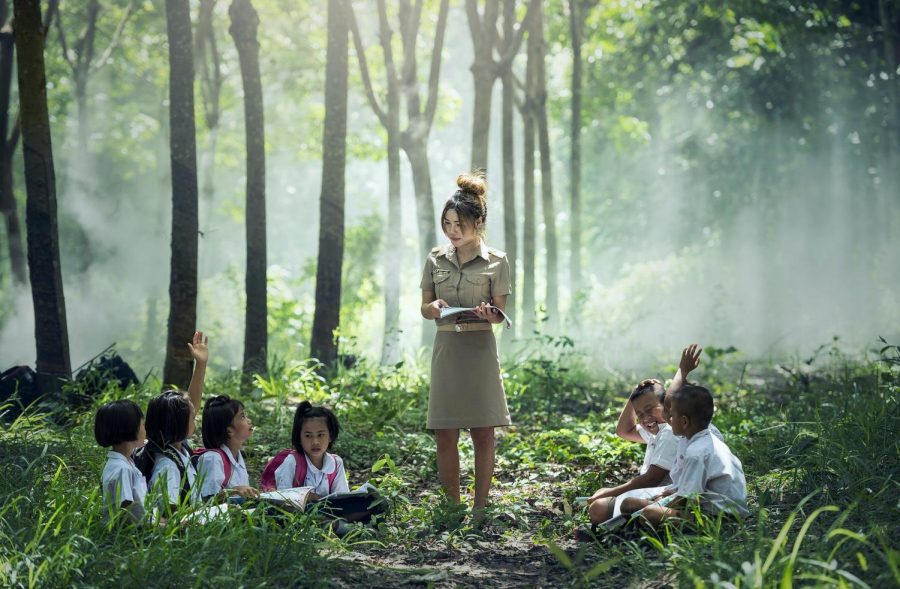WCHS outdoor learning initiative replaces traditional classrooms *(April Fools)
A teacher and her students adjust to outdoor learning environment. WCHS plans to implement the same idea to improve academic performance.
April 9, 2021
WCHS has been around since 1964. For nearly 60 years, the building has stood as a center of education, learning and growth. Now, it won’t. The building will be closed as WCHS transitions to an all-outdoor learning center. A building on the campus will be just a memory of the past.
“We’ve been talking about this transition for years,” James Smith, WCHS’ principal, said. “COVID-19 just accelerated the discussion because it was safer to be outside than in a building. We know that learning outdoors leads to students getting more exercise, feeling better and learning more than if they were in a classroom with a roof over their heads.”
Over the summer, the building and parking lot will be destroyed and a grass field will be put over top of where they stood. There will be white-outlined circles to designate where each teacher will teach their classes on the grass facility. Students will sit or stand within the circle during their classes – desks will be a thing of the past.
“I’m looking forward to not having desks anyone,” John Johnson said. “They are uncomfortable. Being able to stretch my legs will be nice. I’m also looking forward to getting to be outside and enjoy the weather – except for when it’s raining.”
In the circumstances of poor weather – temperatures being over 90 or below 40 degrees, rain, snow, ice or strong winds – classes will take place virtually over Zoom.
Being outdoors will allow students the opportunity to exercise more, as the classes are spread out further than they would be in-person. But, science teacher Mary Williams is mostly looking forward to the opportunity to do more experiments.
“Because we’ll be outside, we can do different experiments,” Williams said. “In my environment sciences class, we can go to a wooded area and observe the soil there and compare that with soil in a non-wooded area. My students will be able to actually see it. I believe that doing that will lead to more students understanding and taking an interest in the topics we’re talking about.”
The main reason this change is occurring is the boost in learning students will gain. A study from the U.S. Department of Education found that students who learned outdoors retained 71 percent more information than their indoor peers. Also, grade-point average (3.2 vs 3.5), standardized test scores (1200 vs 1270 on the SAT and 26 vs 28 on the ACT) and AP scores (3.2 vs 3.9) increased.
“I think we’ll see the positive results of this move, within the first few days,” Smith said. “We’re going to see students retaining more information which will lead to better grades and more knowledge. I always say ‘knowledge is power’ and I believe that this will lead to our students receiving more knowledge and more power.”
*April Fools’ articles are for fun/entertainment purposes only.


